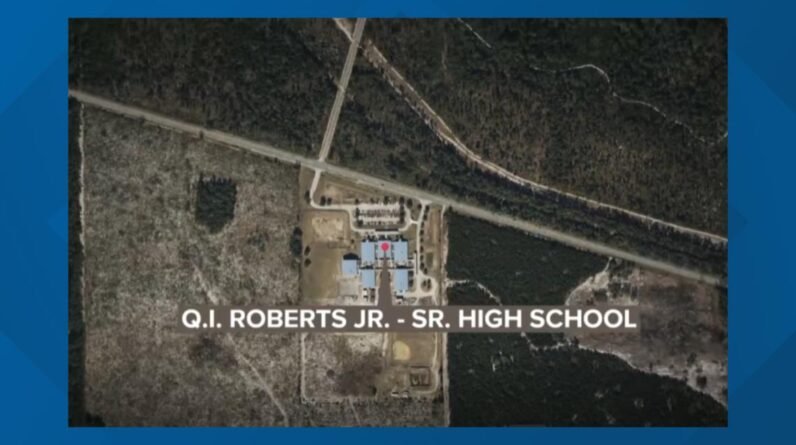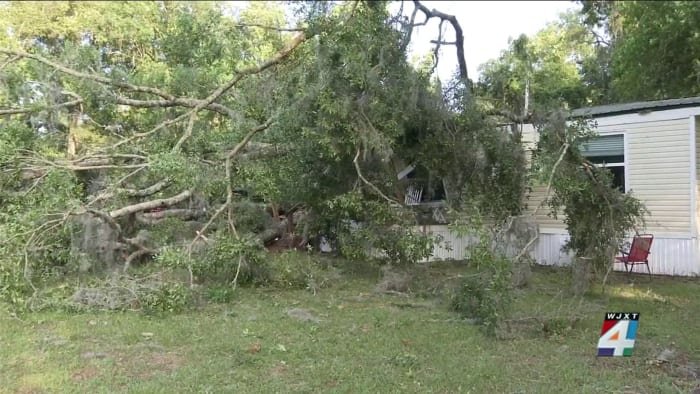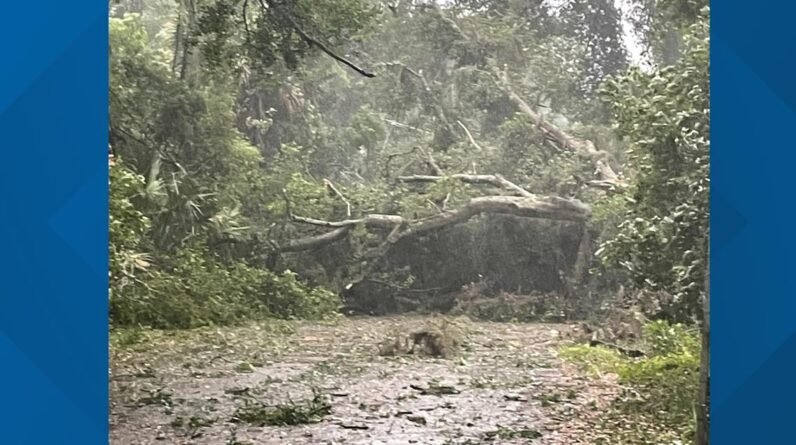
JACKSONVILLE, Fla. – Monday marked Day 9 in the federal trial against former JEA CEO Aaron Zahn and his former Chief Financial Officer Ryan Wannemacher, who are both charged with conspiracy and fraud.
In court, it was laid out that the sale of JEA would have brought in billions of dollars. The majority would have gone to the city to insure the pension plan for JEA employees and make retention payments to employees.
But prosecutors said a large part could have also gone toward the controversial bonus plan, which would have paid out $345 million to top executives.
MORE: Former JEA exec testifies she didn’t speak up about controversial bonus plan because she thought board members knew | Ex-JEA board chair had no idea plan she voted for could net $345M in bonus payouts if utility was sold: testimony | As city council auditors pushed for answers on controversial bonus plan, they say they got no response from JEA execs | FBI agent continues to detail investigation into ex-JEA execs accused in conspiracy case on Day 3 of trial | FBI agent details investigation into ex-JEA execs accused in conspiracy case on Day 2 of trial | Ex-JEA execs accused of orchestrating Jacksonville’s largest fraud scheme layout defense on Day 1 of federal trial
Eddie Manheimer of Morgan Stanley testified that in late November or early December of 2019, Morgan Stanley became aware of a desire by JEA to speed up the sale process. He testified about conversations with then-JEA COO Melissa Dykes, where she encouraged them to move faster. Manheimer described the reason for their change as the fact that the “tide of public opinion was shifting” against the process, and they wanted to alter the narrative. But the investment banker said he let Dykes know that was problematic, as it was hard to believe speeding up the process would result in the optimal outcome for the utility.
The investment bankers said they attended numerous meetings about JEA financial status and said they did not see it was in trouble or that a sale was needed.
NextEra Energy executive Mark Hickson testified about how his company put together its bid for JEA. He said that in the event NextEra bought JEA, the JEA customers would pay the same rate as other FPL customers. But, they would also pay an additional surcharge to deal with JEA’s commitment to buy power from the Plant Vogtle nuclear plant in Georgia.
Hickson explained that NextEra could have taken the Plant Vogtle power, which is more expensive than other sources, and delivered it to JEA customers, or, sold it on the open market, likely at a loss. FPL would then make up that difference with the surcharge, which would have only been for the JEA customers.
NextEra was preparing to offer a little more than $11 billion for JEA, which Hickson said a lot of people refer to as a “donut hole,” as JEA’s service area is surrounded by FPL’s service area, which includes much of Florida’s east coast.
The trial is set to continue for several more weeks.
At the end of the day, after the juries were excused, there was discussion among the judge and attorneys about an additional witness list that prosecutors filed over the weekend, with former JEA chief administrative officer Herschel Vinyard, former chief human resources officer Jon Kendrick, and former board member Camille Lee Johnson. Defense attorneys opposed allowing them to testify, in part because during their opening statements, they said the juries would not be hearing from these people.
The judge said he is going to take the matters under advisement.
Copyright 2024 by WJXT News4JAX – All rights reserved.







